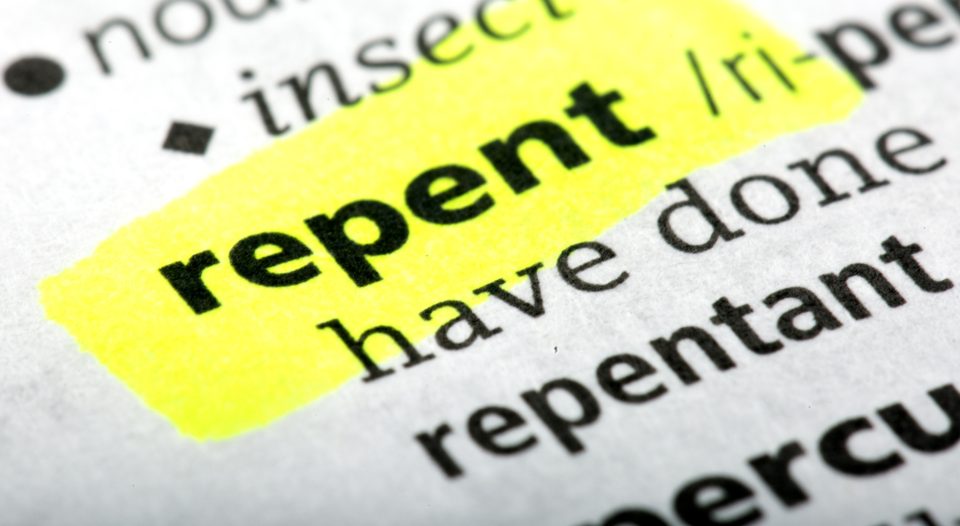Lectionary for Oct. 1, 2023
18th Sunday after Pentecost
Ezekiel 18:1-4, 25-32; Psalm 25:1-9;
Philippians 2:1-13; Matthew 21:23-32
In contemplating the readings for this week, I started thinking about birth order and personalities. Generally, but not always, the firstborn is a rule follower and deeply concerned with fairness. Middle children are rambunctious and spirited but deeply committed to relationships and emotional intimacy. “Babies” go their own ways and frequently have less of their self-image wrapped up in the family unit than their older siblings. Again, these are general trends rather than family destinies.
I’m one of three children, and so is my partner. We have three children as well, and we see these dynamics at work in our families. I was wondering with my partner about how our/my parenting contributed to these dynamics. Particularly, I was wondering if I was shortchanging my youngest by not being as quick to guide and correct as I was with the older two. Quite simply, I’m too tired to maintain the kind of helicopter parenting that I did so many years ago. In this week’s texts, we see a God who is a much better and more consistent parent than I am. God insists on giving all humans the same grace and call to repentance.
The reading from Ezekiel starts with a parable that God finds offensive: The parents eat sour grapes and the children’s teeth are set on edge. The parable captures a fundamental injustice where children pay for the sins of their ancestors. God swears by God’s own life that the people of Israel will no longer have cause to speak this parable. Generational evils will cease and now individuals will be punished or rewarded according to their own actions.
If righteous people repent of their righteousness and begin to do evil, they will be punished. And if wicked people repent of their wickedness and begin to do righteousness, they will be rewarded. God—through the prophet—begs the Israelites in exile and still at home to hurl away their idolatry and injustice and make new hearts and spirits for themselves (Ezekiel 18:31). As God proclaimed in the Ezekiel text we read one month ago, God doesn’t take any pleasure in death. For that reason—for God’s sake!—God teaches the people to repent and live.
God takes no pleasure in death. Instead, God calls us to repent and live.
The Psalmist knows that God loves to teach repentance to sinner and saint alike. The psalmic choir asks God to lead them in truth and teach them God’s ways. The psalmist also knows that the Lord is good and upright, instructing sinners and leading the humble in justice. God teaches the afflicted the way that leads to life and doesn’t reserve divine education for the holy alone. As Jesus teaches, it’s not the healthy who need a physician, only the sick (Matthew 9:12). God graciously calls sinners to repentance, rather than leaving them/us/me languishing in ignorance.
Finally, we come to Jesus, who is teaching in the temple precincts only a few days before his murder. The chief priests and elders want to know who gave him permission to teach? Jesus could teach repentance in the countryside of Galilee and in the hospitals of Bethany all he wanted, but who told him he could bring his message to the temple?
Jesus responds by asking a trick question: from where did the baptism of John come, humans or heaven? In asking this, Jesus challenged the Sadducees to answer their own question about him—where did Jesus’ authority to teach come from, humans (John the Baptizer) or heaven? Of course, the answer is both! John laid hands on Jesus at his baptism, recognizing that he was the coming messiah (Matthew 3:13-15). Immediately after the baptism, the Spirit of God also touched Jesus and recognized him as God’s son (Matthew 3:16-17). Jesus had all authority to teach in the temple and anywhere else he liked!
And what Jesus taught that day, like many other days in his ministry, was about repentance. Who pleases the parent: the child who disagrees but then obeys, or the child who agrees but then disobeys? Jesus said those who repent of their disagreement with God and ultimately choose righteousness will enter the kingdom of heaven before those who speak piously but don’t repent of their works of exclusion and self-righteousness. Jesus calls all of us to respond to the call to repentance and perform gracious inclusion that John the Baptizer modeled.
God is an exceedingly good and constant parent, at all times and in all places, pursuing humans with grace and compassion. God takes no pleasure in death. Instead, God calls us to repent and live. God, through the prophets and then through God’s son, teaches repentance for our good, if only we have ears to listen, learn and live!





